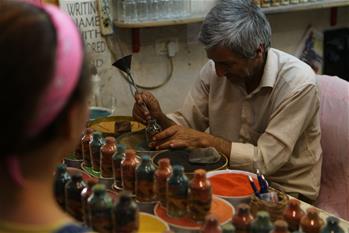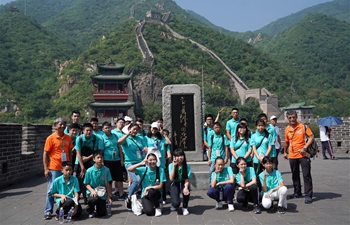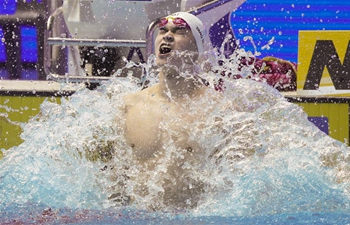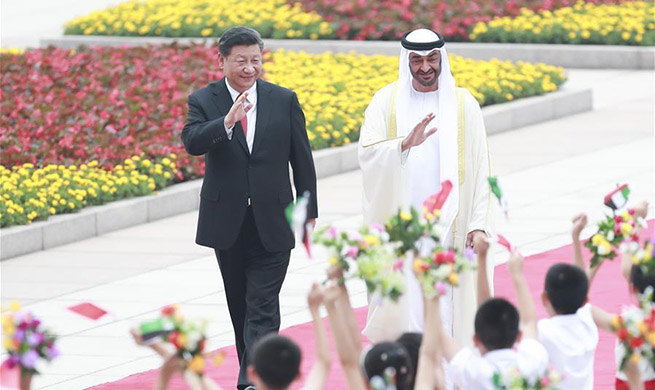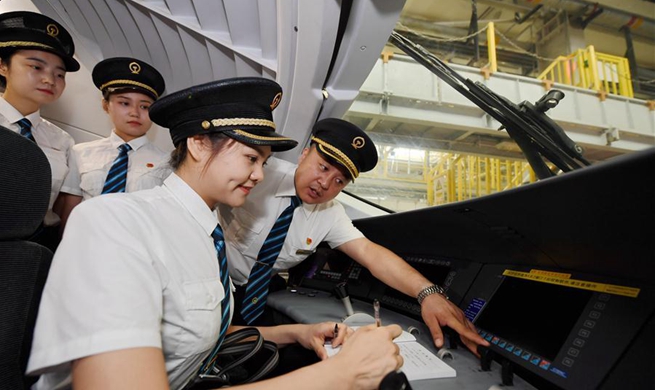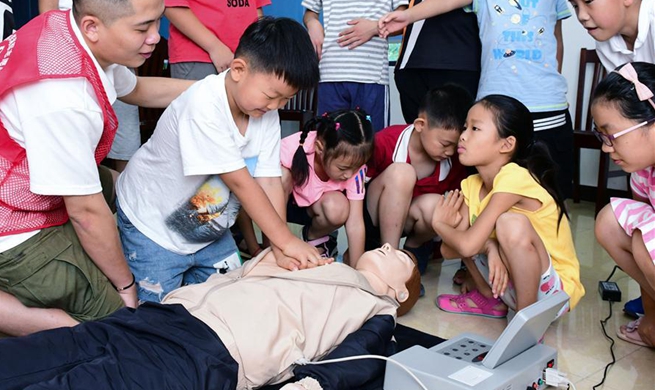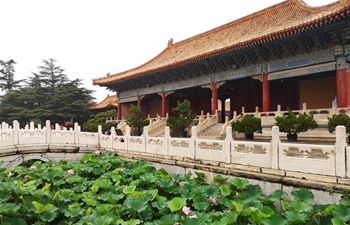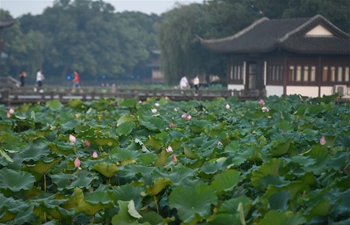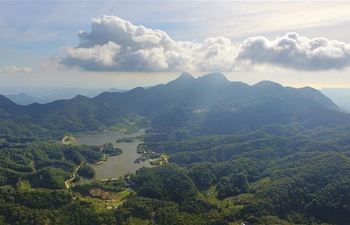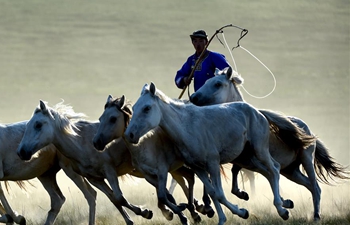By Zhang Hongyi and Zhang Rongfeng
BEIJING, July 23 (Xinhua) -- The 2020 Tokyo Olympic Games is just around the corner, and it will be the first time that a Summer Olympics has been held in Asia since 2008. Following is Xinhua News Agency's exclusive interview with Liu Guoyong, vice president of the Chinese Olympic Committee and head of the Olympic Preparation Office.
Q: Could you brief on us how well Chinese teams have been preparing for the Olympics? Is there anything new that is worth mentioning?
A: Since we have only one year left, we are actually facing mounting pressure and great challenges. Overall, Chinese teams are in good form after two years of preparation. To begin with, we are becoming more united than ever.
Secondly, both athletes and coaches have realized their responsibility and mission with ever-stronger momentum. What's more, Chinese teams are constantly improving based on what we achieved at the world championships in 2018 and the first half of 2019. Despite fluctuation, we have done well for the most part. In spite of mounting pressure and fierce competition, Chinese contenders will go all out for a win. We believe in ourselves.
There are four new characteristics. First is our systematic preparation, which refers to a comprehensive top-level design that involves a service support, media services and so on. Second is reform. The Tokyo Olympics will be the first time for China to have some sport associations directly involved in training and guidance all through the process. Reform and preparation can now reinforce each other, which was rare in the past. The third is nationwide preparation. This time, we enjoy unprecedented social involvement and specific data on this will be released after the Tokyo Olympics. The last point is openness. We've been actively participating in international competition, learning from other countries' experience and keeping track of what's going on around the globe.
Q: Can you explain what events Chinese teams are good at or potentially good at? Any new ground to break for medals?
A: At least now, we're still strong in the six events we are traditionally good at, including weightlifting, diving, table tennis, badminton, gymnastics and shooting. There are also some events we are competitive in terms of getting on the podium, such as athletics, swimming, cycling and fencing. Generally, we've maintained our strengths. For example, China has made breakthroughs in the women's 10km open water at the ongoing FINA Swimming World Championships in Gwangju, South Korea. If there's still something that deserves our concern, it should be the newly-added events at the Tokyo Olympics, such as Karate, sport climbing, baseball and softball. Although China has made great progress, there's still a long way to go before we catch up.
Q: How would you describe the current global sports landscape? Which teams might be tough opponents for China in Tokyo?
A: The global sports landscape hasn't changed too much. The United States still dominates world championships, especially in athletics and swimming, as we can see from events in 2018 and the first half of 2019. Russia is rising by snatching 27 golds at world championships and tournaments, though it was prohibited from several events in 2018. France, as the next Olympics host, has done a lot in preparation and layout. Britain and Germany are also improving. Therefore, China is facing serious challenges if we want to stay in the top three.
It's worth noting that Japan ranked no better than the second group on the medal tally when attending Olympic Games on foreign soil, but it's improving so rapidly that it has even set the goal of over 30 golds, which we think is totally reachable through hard training. The host country will usually score better on home soil, let's say, a 60 percent increase, according to analysis from the previous eight Olympic Games. Japan has invested a lot in athletic sports recent years and has borrowed our "whole nation" system. More importantly, these newly-added events are their strength but our weakness, which results in more pressure on us. Apart from its traditional advantageous events, such as Karate, wrestling, and baseball, they have also shown momentum in events like cycling, fencing and tennis. In this sense, we have no absolute advantage over Japan, so the Tokyo Olympics will be a most challenging one for us.
Q: Since there's only one year left, what can the Chinese Olympics Committee do to guarantee China's best performance in Tokyo?
A: Our priority from 2019 to the first half of 2020 is to win as many qualification quotas as possible. We also need to focus on our weaknesses and pick up the pace. For example, Chinese athletes show less physicality, especially in events like athletics, swimming, and the like. Each team should build on their fitness for professional competition. In addition, we should view every event as a training opportunity. Qualifications for Tokyo 2020 can only be secured through qualifiers, and as the situation and rules of global sports are continuously changing, the question of how to leverage so many events remains a challenge for us. We need to take part in more events to hone our skills. Thirdly, both the physical and mental health of athletes are equally important. We should prevent any kinds of injuries and illnesses ahead of Tokyo.
Q: What does China aim to achieve in Tokyo?
A: Our goal is clear. First, our number of athletes attending an overseas event should hit a record high. Second, we need to be in the top three on the medal tally. No matter what we can achieve, we must set off with courage and confidence. Third, zero tolerance for doping, which is our bottom line. Golds must be clean. We are also more than willing to promote exchanges between Chinese youth and their counterparts from all over the world. Wonderful performances can help improve China's image and national strength. We believe in ourselves and we will live up to the expectations of our people.




